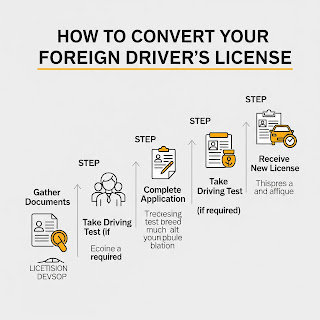What Daily Life Is Really Like for Expats in Saudi Arabia
What Daily Life Is Really Like for Expats in Saudi Arabia
Meta Description: Discover the real expat experience in Saudi Arabia—daily life, culture, work routine, housing, shopping, and social interaction in 2025.
Labels: Expat Life in Saudi Arabia, Daily Routine KSA, Living in Riyadh, Moving to Saudi Arabia, Saudi Culture, Work in Saudi Arabia
Introduction
What’s it really like to live in Saudi Arabia as an expat? From the outside, it may seem like a country full of strict rules and unfamiliar customs—but for millions of foreign workers and families, daily life here is surprisingly comfortable, secure, and full of opportunities. Whether you're in Riyadh, Jeddah, Dammam, or smaller cities, this post covers what you can expect day-to-day in 2025.
1. Morning Routine: Work, School, and Traffic
Most expats begin their day early. Work typically starts around 8:00 AM to 9:00 AM and schools start between 6:45 AM and 7:30 AM. In major cities, morning traffic can be busy, so many people leave home before 7:00 AM.
- Work Days: The Saudi workweek runs from Sunday to Thursday. Friday and Saturday are weekends.
- Commute: While driving is the most common method of transportation, many expats also use private ride apps like Careem or Uber.
For more on transport, check out our guide: Public Transportation in Saudi Arabia.
2. Workplace Culture for Expats
Workplace environments vary depending on the sector. While government offices have shorter hours (especially during Ramadan), private companies tend to operate 8–9 hour workdays. Expats typically work in education, healthcare, engineering, IT, or service industries.
- Most offices are gender-segregated, though this is gradually changing.
- Arabic is the official language, but English is widely used in business settings.
- Prayer breaks are respected throughout the day, often scheduled into the work routine.
3. Grocery Shopping and Daily Errands
Expats usually shop at large supermarkets such as Panda, Carrefour, Lulu, and Tamimi. These stores offer a mix of local and imported products to cater to the diverse population. Street corner baqalas (small shops) are also common for quick grocery runs.
Shopping Tips:
- Shopping malls are air-conditioned and family-friendly—popular for weekend outings.
- Prices are generally affordable, but imported goods can be pricey.
- Many expats buy in bulk or use online grocery apps like Nana or HungerStation.
4. Food and Dining Options
Saudi Arabia offers a wide variety of dining experiences—from traditional Middle Eastern food to international chains. Most expats enjoy eating out thanks to affordable options and high-quality restaurants.
- Dining out is common, with plenty of Indian, Filipino, Pakistani, American, and Italian restaurants.
- Home delivery is extremely popular and efficient.
- Alcohol is prohibited, but non-alcoholic beer and mocktails are widely available.
5. Life at Home: Housing & Utilities
Most expats live in apartments or villas, often within gated compounds that offer privacy, gyms, pools, and security. Renting is relatively affordable compared to other Gulf countries, especially outside central Riyadh or Jeddah.
- Housing Costs: Range from SAR 2,000 to SAR 6,000/month depending on size and location.
- Utilities: Water and electricity are subsidized but can rise during summer months due to A/C use.
- Internet: High-speed plans are widely available. For help choosing, see: Best Mobile and Internet Plans for Expats in KSA.
6. Social Life & Community
While Saudi society is conservative, expat communities are vibrant. Many people form strong friendships through work, compounds, churches (private worship is allowed), and embassy events.
- Men and women socialize in family sections, coffee shops, or malls.
- There are plenty of expat Facebook groups and WhatsApp communities for support.
- Events like food festivals, desert trips, and National Day celebrations are inclusive of expats.
7. Gender Norms & Cultural Etiquette
Saudi Arabia has modernized rapidly, especially with the Vision 2030 reforms. Women can now drive, travel alone, and work in many industries. That said, respect for cultural norms remains essential:
- Modest dress is expected (especially in government offices or rural areas).
- Public displays of affection are discouraged.
- Prayer times are strictly observed—some shops close briefly for 15–30 minutes.
For a full guide, see: Local Customs and Cultural Etiquette in Saudi Arabia.
8. Recreation, Fitness & Entertainment
Entertainment options have grown dramatically. Saudi Arabia now hosts concerts, cinemas, theme parks, and even Formula 1 races. Gyms, spas, and beach resorts are common, and women-only facilities are widely available.
- Weekend trips to the desert or Red Sea are very popular.
- Fitness centers and yoga studios operate in all major cities.
- Streaming services like Netflix, Shahid, and Amazon Prime are widely used at home.
9. Healthcare and Emergency Services
Saudi Arabia has a strong healthcare system. Most expats are covered by mandatory health insurance provided by employers. Hospitals and clinics are modern and staffed by international professionals.
- Emergency number: 997 (ambulance), 999 (police), 998 (civil defense)
- Private hospitals offer faster service, often with English-speaking staff.
For detailed info, see: Healthcare in Saudi Arabia for Expats.
10. Final Thoughts
Living in Saudi Arabia as an expat in 2025 is a unique blend of tradition and modernity. Daily life is shaped by the country’s culture, values, and rapid development—but it also offers convenience, safety, and new experiences. The key to thriving as an expat is to stay open-minded, respect local customs, and take full advantage of the comforts available.
For more insights, visit our blog homepage: My Life in Saudi




Comments
Post a Comment